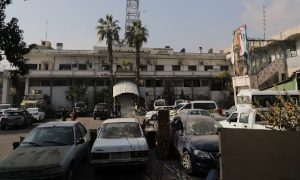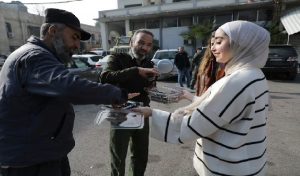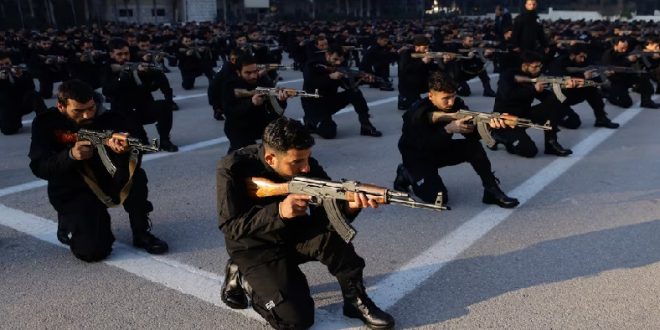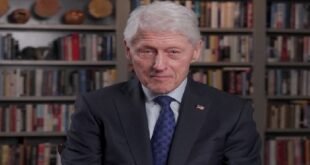24-01-2025
DAMASCUS: Syria’s new authorities are using Islamic teachings to train a fledgling police force, a move officers say aims to instill a sense of morality as they race to fill a security vacuum after dismantling ousted president Bashar al-Assad’s notoriously corrupt and brutal security forces.
Police they brought into Damascus from their former rebel enclave in the northwestern region of Idlib are asking applicants about their beliefs and focusing on Islamic sharia law in the brief training they offer recruits, according to five senior officers and application forms seen by media.
 Ensuring stability and winning the trust of people across Syria will be crucial for the Sunni Muslim Islamists to cement their rule but the move to put religion at the centre of policing risks seeding new rifts in a diverse country awash with guns after 13 years of civil war and alienating foreign governments they have been trying to woo, regional analysts warn.
Ensuring stability and winning the trust of people across Syria will be crucial for the Sunni Muslim Islamists to cement their rule but the move to put religion at the centre of policing risks seeding new rifts in a diverse country awash with guns after 13 years of civil war and alienating foreign governments they have been trying to woo, regional analysts warn.
“There are many Syrians who will find this concerning,” said Aron Lund, a fellow at Century International, a Middle East-focused think tank, when asked about media’s findings. “Not just minorities Christians, Alawites, Druze but also quite a lot of Sunni Muslims in places like Damascus and Aleppo, where you have a fairly large secular, cosmopolitan population that’s not interested in religious law.”
The religious foundations of the police training are also making Western governments wonder how big a role Islam might play in Syria’s constitution, which the former rebel faction now in power plans to revise, said one diplomat, who was not authorized to speak publicly on the matter.
“It’s not a good sign, but it also depends on how strictly it will be implemented,” the diplomat told Reuters. Syria’s de facto leader, Ahmed al-Sharaa, has sought to reassure Western officials and Middle Eastern governments worried about their own Islamist movements that his faction has renounced its former ties to al Qaeda and will rule with moderation, including protecting minorities.
The group, Hayat Tahrir al-Sham (HTS), has a track record of pragmatism, backing away from enforcing some strict interpretations of Islamic law in areas it controlled during the war. Syria’s  Interior Ministry, which oversees police, and Information Ministry did not respond to questions about the focus on religion in police recruitment and training, or whether there are plans to incorporate Islamic law into the legal code.
Interior Ministry, which oversees police, and Information Ministry did not respond to questions about the focus on religion in police recruitment and training, or whether there are plans to incorporate Islamic law into the legal code.
The senior police officers interviewed by media said the intention was not to impose it on the general population but rather to teach recruits ethical behavior.
Hamza Abu Abdel Rahman, who helped set up the group’s police academy in Idlib before transferring to Damascus, said an understanding of religious matters, “what is permissible and what is not”, is crucial for recruits to “act justly”.
Assad’s myriad security forces were widely feared for tyrannical and predatory behavior, ranging from arrests of dissidents who ended up tortured or killed to demanding bribes to resolve minor infractions.
The extent of public anger against them was evident in the days after Assad was toppled on Dec. 8. Most of the capital’s police stations were ransacked by looters, with equipment and records pillaged or destroyed.
Police said half of the roughly 20 stations have since reopened, but they are each staffed by around 10 officers, mostly brought in from Idlib, instead of their previous complement of 100-150 officers.
At three stations visited by reporters in late December, a handful of exhausted officers was trying to deal with a welter of issues, from complaints of rampant crime to a garbage collector who brought in two bags of hand grenades he found on the street. (Int’l Monitoring Desk)
 Pressmediaofindia
Pressmediaofindia




